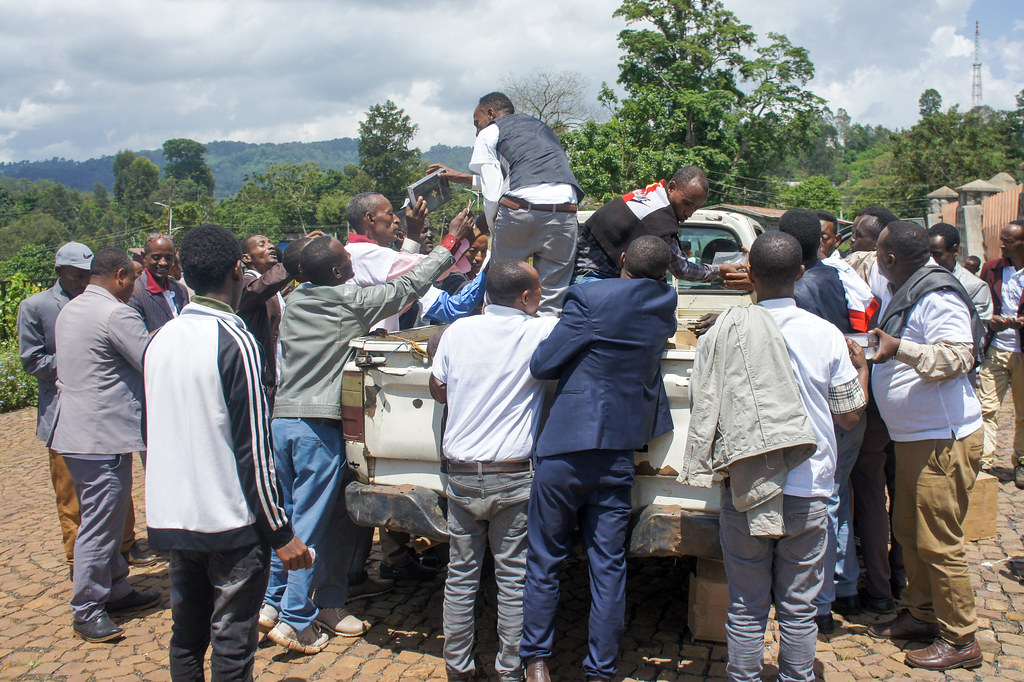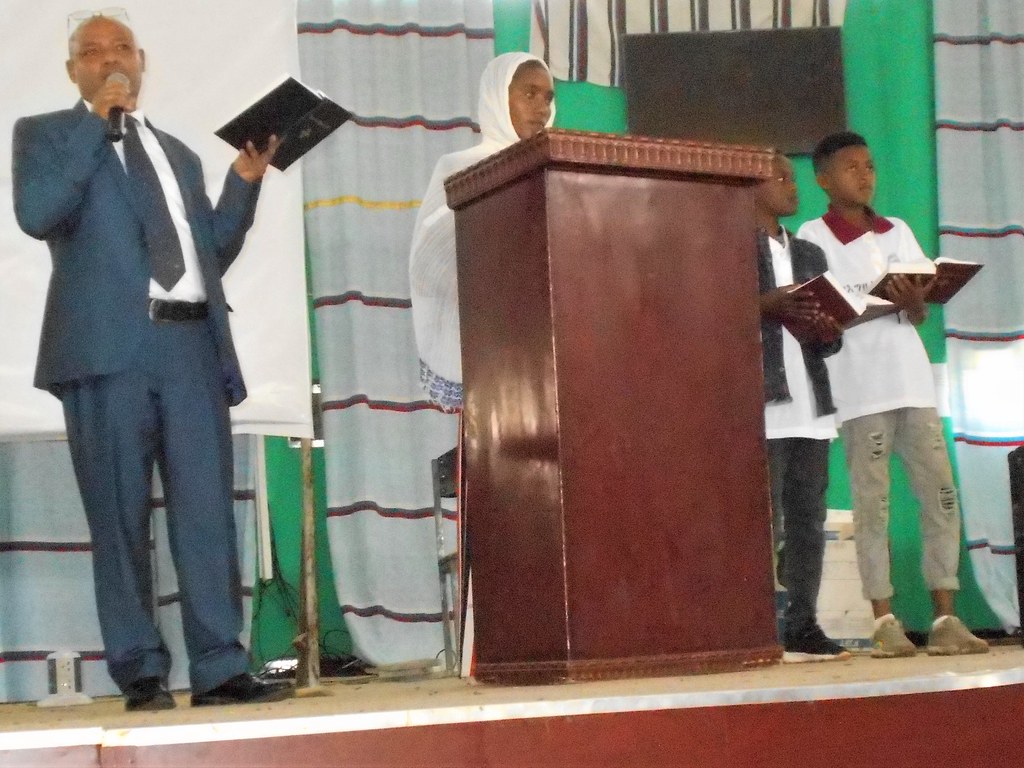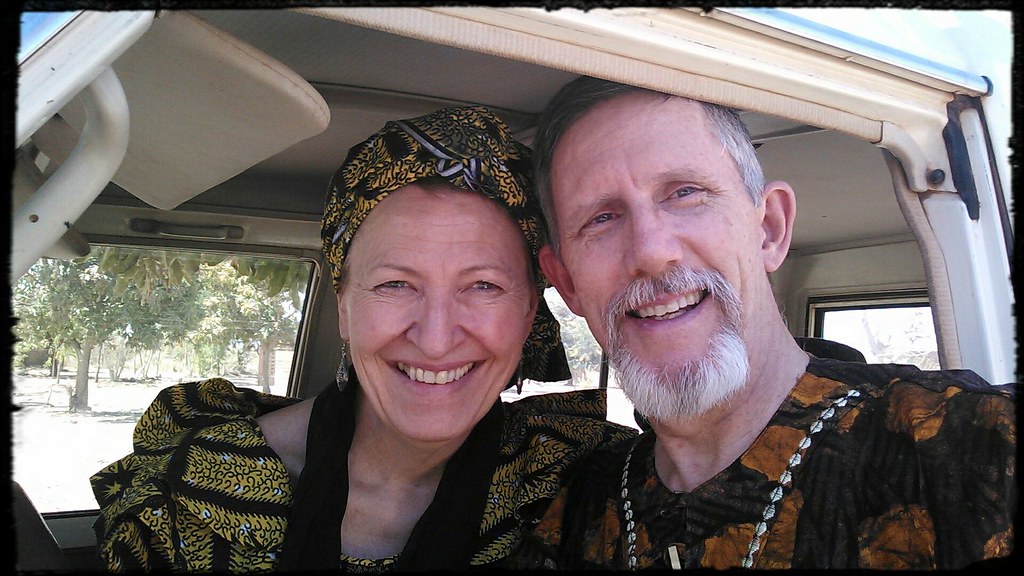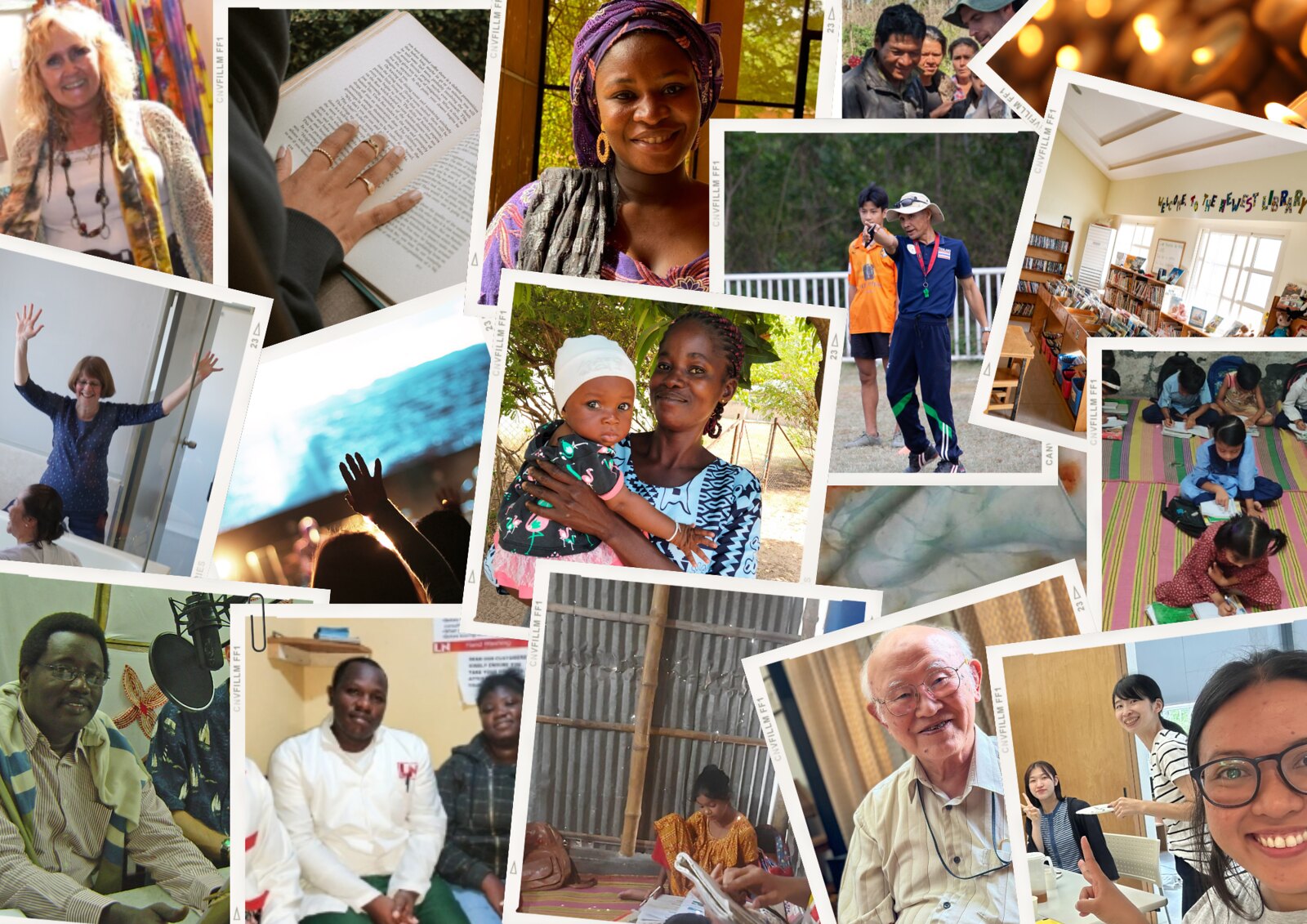Long awaited fruit: The Kafa Bible
By Tohru Inoue | Ethiopia in East Africa

Women holding the Kafa Bible. Photo by Tom Fifield.
After a labour of love spanning more than 40 years, the Kafa Bible was dedicated in Bonga, Ethiopia, earlier this year. Matewos Gebremariam and Carolyn Ford, representing the translation team, witnessed the dedication, but these two weren’t always part of the project. The list of people involved is long and – just like the genealogies in the Bible – spans a lengthy period of time.
Ruth Cremer first took on the Kafa translation project in 1981, working with Solomon Wolde. Eventually, Solomon left and Demeke Gobana and Mekonnen Mageto joined. Then there was Matewos Gebremariam, Gezahegn Wodajo, Kurt Michler, Tekalign Shiferaw and Kochito Alemayehu.

In the biblical genealogies, I imagine the people who are early on the lists wishing they could have met the names later on the list. But the names that came first in the genealogies didn’t live to see those days.
Many of the earlier translators’ names above also didn’t see the end of their work. Some came for a season, and like working on a farm, tilled the soil but never got to see any buds form. Others tended the weeds but left this earth before the flowers bloomed. They passed away, leaving behind their work for a whole new group.

People crowding around the truck to buy their copy of the Bible on dedication day. Photo by Tom Fifield.
Ruth Cremer was diagnosed with acute leukaemia in 2008 and passed away that year. In 2013, Gezahegn Wodajo was diagnosed with liver cancer. He passed the following year, leaving behind a young family.

Carolyn Ford (left) with friend. Taken by Tom Fifield.
At the dedication ceremony, the book of Ruth was read. It was an interesting choice. It, too, tracks the story of those who remain behind when others have left too soon. In the story, Naomi’s husband and her two sons die, leaving her and her two daughters-in-law widowed. At this point, you would be forgiven for believing that the genealogy ends there – that no more names would follow on.
But if there is something I’ve learned from reading the biblical genealogies, even when it looks like names have run out, God keeps going until he’s finished his work.
Naomi’s daughter-in-law, Ruth, eventually marries Boaz and becomes the mother of Obed, who becomes the father of Jesse, who becomes the father of David, the great king!

Matewos who helped in the translation work. Photo by Carolyn Ford.
But even David is not the last name …
Even after some names had left “early,” God added names who saw the translation work through. Some names came and translated the minor prophets. Others came and did the Psalms, and others still typeset the text. And now, after all those names listed at the top, we’ve witnessed the fruit of the completed Kafa Bible!
But fruits in turn produce seeds that yearn to be planted again. Holding the fruit of the Bible dedication is not the end but a chance to grab a handful of this beautiful new seed and scatter it extravagantly until it finds good soil to start all over again. That will be the work for a whole new generation of names God adds.
A name like yours, perhaps.
His work is carrying on. Because it’s not done until he’s written in the last name.
Grow with us
Come be part of the church’s work in reaching those in communities where Jesus is least known! Contact us today to get started.
Related stories

In Carrie’s classroom, Jesus is shaping hearts and minds for his kingdom
When mission workers with young families leave their home country, a major concern is how their children will get on. While the parents are out serving, the kids need stability, education, and spiritual nurturing. That’s where teachers like Carrie come in. Originally from Kansas, Carrie now teaches at a mission school in Liberia, part of Dakar Academy in Senegal, shaping young hearts and minds for God’s kingdom.

Ken & Gwen Baker have spent 40+ years engaged in mission work and adventures with God
Ken and Gwen Baker have retired after 43 years of faithful service with SIM — a life devoted to God, to their teammates, and to equipping others for ministry. They spent decades planting churches in West Africa, fostering intercultural ministry, and shaping mission training that continues to impact workers worldwide. As they step into a new season of life, their story serves as a powerful reminder of how God uses ordinary people, willing to follow his call, to build His church and transform lives.

What might God do in 2025?
As we step into 2025, there is a sense of excitement and expectancy among those serving in mission work worldwide. From remote villages to bustling cities, SIM’s Entity Directors are preparing for what lies ahead, trusting God to bring transformation and hope to unreached and underserved communities. To gain insight into their vision and prayers for the year, we spoke with leaders across the globe about their hopes, challenges, and how the global Christian community can pray and support their work.

